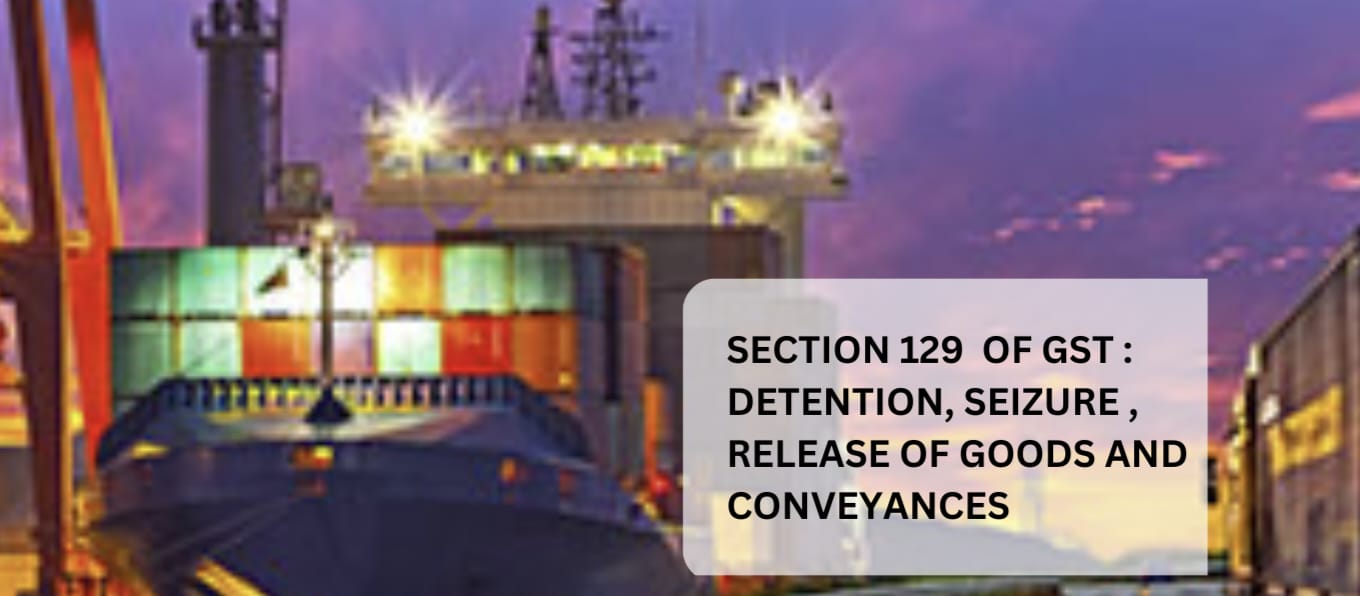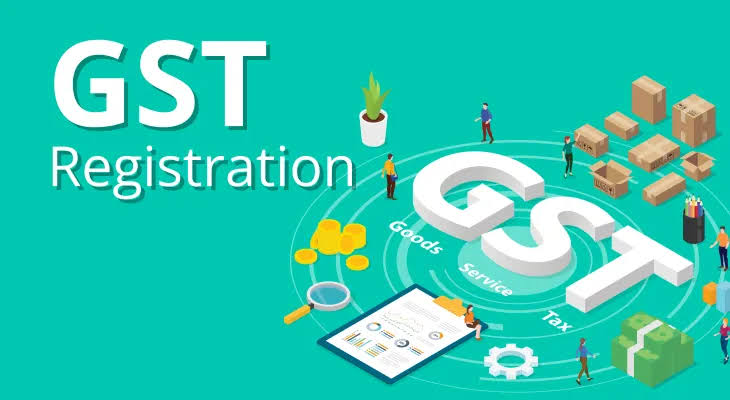Analysis of Section 129 of the GST Act: Detention, Seizure, and Release of Goods and Conveyances
The Goods and Services Tax (GST) Act has significantly transformed India's taxation landscape, introducing a more unified and efficient system. Section 129 of the GST Act outlines the procedure for the detention and seizure of goods and conveyances in transit when there is a suspicion of tax evasion or non-compliance with the GST law. This section ensures that goods being transported are accompanied by the necessary documentation and that taxes are duly paid. In this blog, we will provide a detailed analysis of Section 129, exploring its provisions, procedures, and the challenges it presents.
Key Provisions & Procedures of Section 129
Key Provisions of Section 129
1.
Detention and Seizure:
· If goods are found in transit without the proper documentation or if there is a reason to believe that the goods are being transported to evade tax, they can be detained or seized.
· The officer in charge has the authority to detain the goods and the conveyance until the necessary documents are produced or the applicable tax and penalties are paid.
2.
Notice and Opportunity to be Heard:
· After detention, a notice is issued to the owner or the person in charge of the goods, detailing the reasons for detention and the amount of tax and penalty payable.
· The concerned party is given an opportunity to be heard, ensuring a fair and transparent process.
3.
Payment of Tax and Penalty:
· To secure the release of the detained goods and conveyance, the owner or transporter must pay the applicable tax and penalty.
· The penalty is typically equivalent to 200% of the tax payable on the goods when the owner of goods approaches the officials.
· In case if the owner of the goods didn’t expose him / her – self then the transporters should pay 50% of the tax payable on the goods.
· In case of exempted goods, the penalty is an amount equal to two per cent of the value of goods or twenty-five thousand rupees
· If the owner wishes to contest the detention, they can opt to provide a security equivalent to the amount payable.
4.
Release of Goods:
· Upon payment of the tax and penalty or furnishing of security, the detained goods and conveyance are released.
· If the tax and penalty are not paid within fourteen days of detention, the goods and conveyance may be confiscated and sold to recover the dues.
Procedures under Section 129
1.
Detention Order:
· The GST officer issues a detention order specifying the details of the goods, conveyance, and the reasons for detention.
· The order includes the estimated tax and penalty payable.
2.
Hearing and Representation:
· The owner or transporter can present their case and submit the required documents during the hearing.
· They can argue against the detention if they believe it to be unjustified.
3.
Assessment of Tax and Penalty:
· Based on the hearing, the GST officer assesses the tax and penalty.
· The amount payable is communicated to the concerned party.
4.
Payment and Release:
· The owner or transporter pays the assessed tax and penalty or provides the necessary security.
· Upon receipt of payment or security, the detained goods and conveyance are released.
Challenges and Controversies
Challenges and Controversies :
Section 129, while aimed at ensuring compliance, has faced criticism and challenges from businesses and industry stakeholders. Some of the primary concerns include:
1.
High Penalties:
· The penalties under Section 129 can be substantial, often equating to 200% of the tax payable, which can be financially burdensome for businesses.
· Critics argue that such high penalties can be disproportionate and punitive, especially for small and medium enterprises.
2.
Discretionary Powers:
· The discretionary powers vested in GST officers can lead to inconsistent enforcement and potential misuse.
· Businesses have raised concerns about arbitrary detentions and harassment by officials, which can disrupt business operations and lead to financial losses.
3.
Operational Delays:
· The detention and subsequent procedures can lead to significant operational delays, impacting supply chains and business operations.
· The process can be time-consuming, causing disruption in the timely delivery of goods and increasing logistical costs.
Recent Amendments and Judicial
Interpretations :
To address some of the concerns, there have been amendments and clarifications related to Section 129. Recent judicial interpretations have also played a role in shaping the application of this section. Courts have emphasized the need for fair procedures and proportional penalties, providing relief in cases of arbitrary detentions. For instance, the judiciary has underscored the importance of due process and the need for GST officers to provide clear and justified reasons for detentions and seizures.
Conclusion :
Section 129 of the GST Act is crucial for ensuring tax compliance and preventing evasion during goods transit. Despite its importance, the section has faced criticism for harsh penalties and the discretionary powers of officials. Businesses must understand Section 129, maintain proper documentation, and comply with GST regulations to avoid issues. Balancing enforcement with fairness is essential to prevent undue burdens on businesses. With ongoing amendments and judicial oversight, Section 129 can become more streamlined and equitable, promoting a compliant and efficient tax system in India.






